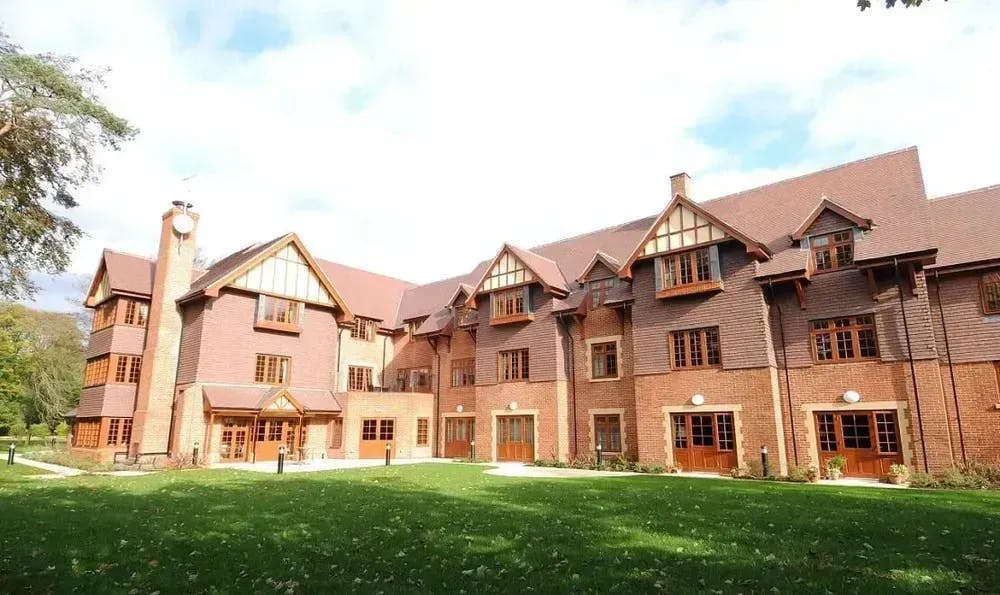What Does the 12-Week Property Disregard Mean? What Happens To My Home?

Estimated Reading Time: 7 minutes
This article was reviewed by Sara Chapin, Director of Finance at Lottie, on 16th December 2024, to ensure accurate and trustworthy information for care seekers. Sara Chapin has been a Certified Public Accountant with the National Association of State Boards of Accountancy since 2017. Next review due December 2025.
One of the most important aspects of funding residential care is knowing and understanding the value of your property.
A 12-week property disregard aims to give you or your loved one enough time to decide how your property will help fund any future care home costs.
Here, we’ve explained exactly what a 12-week property disregard is, what counts as property and what happens after the 12 weeks are up. We’ve also answered a handful of frequently asked questions surrounding this topic.
We’d recommend you seek independent advice from an expert before making any major financial decisions.
Browse recommended local homes
Compare care homes with availability near you.
In this article on the 12-week property disregard:
- What is a 12 week property disregard?
- UK savings thresholds for a 12-week property disregard
- How do these thresholds work?
- Once the 12 weeks has finished
- Will your property be taken into account?
- Can a top-up fee be paid during these 12 weeks?
- Can you have multiple 12-week property disregards?
What Is A 12 Week Property Disregard?
A 12-week property disregard is where the value of your property isn’t counted in a financial assessment during the first 12 weeks of you permanently living in a care home. This doesn’t apply to home care, as you’ll still be living in your home so it wouldn’t be included in a financial assessment regardless.
People get a 12-week property disregard when they’re classed as having the necessary wealth to pay for their care, but this wealth is tied up in the value of their property, so they don’t actually have enough easily accessible money to pay with.
When property isn’t counted in a financial assessment, people then often fall under their country’s thresholds, meaning they won’t have to pay for some or all of their care for 12 weeks. Their local authority will pay for it instead.
You could be eligible for a 12-week property disregard if the amount of money you have is above your country’s upper threshold and you own the home you currently live in. If the total value of your assets and savings is below your country’s upper threshold, you wouldn’t need a 12-week property disregard as your local authority would already be paying for some or all of your care.
The 12-week property disregard can only be applied to your main or only home. For example, if you lived with family members before moving into a care home but you still own the property you lived in before this, then that property can’t be disregarded from a financial assessment for the 12-week period as it isn’t your former main residence.
You’ll be told whether or not you qualify for a 12-week property disregard during a financial assessment carried out by your local authority, which immediately follows a care needs assessment.

UK Savings Thresholds For A 12-Week Property Disregard
Whether or not the local authority will contribute towards your care home fees depends on the total value of your savings and assets. If this value exceeds the upper limit, you’ll typically have to pay the full cost of care.
However, if your savings and assets fall below the lower threshold, your local authority may fully cover the cost of care. If your savings and assets fall somewhere in between these two thresholds then you’ll qualify for partial funding. Again, if they’re below the lower threshold, you won’t need a 12-week property disregard as your local authority will already be paying for your care.
Here are the UK savings thresholds for care home fees in 2025/26:
England
Upper threshold: £23,250
Lower threshold: £14,250
Scotland
Upper threshold: £35,000
Lower threshold: £21,500
In Scotland, personal and nursing care is free for those who have been assessed as needing it. You can also claim payments to cover these parts of your care home costs.
Wales
Upper threshold: £50,000
Lower threshold: N/A
In Wales, there is only an upper limit. If your savings and assets are worth less than £50,000 then you’ll receive the maximum support from your local authority regardless.
Northern Ireland
Upper threshold: £23,250
Lower threshold: £14,250
How Do These Thresholds Work?
If your assets exceed the upper threshold (so £23,250 in the case of England), you’ll have to self-fund all care costs. If your savings or any other liquid assets (things that can be easily converted into physical money) are above the threshold and you plan on selling your property to fund care costs, the council will disregard its value for the first 12 weeks of your care home placement.
Find your local council or authority here.
Once your local authority has disregarded the value of your property and your total assets are below the upper limit as a result, they’re then obliged to pay your care costs for the 12 weeks.
They’ll pay for all of your care if you’re below your country’s lower threshold, and some of your care if you’re between your country’s two thresholds (you may have to make a contribution to your care if you’re between them).
If your home is sold within 12 weeks, they’ll pay until the sale goes through.
If your local authority pays any money towards your care costs during the 12 weeks, you don’t need to pay this back.
Once The 12 Weeks Has Finished
What happens after the 12 weeks depends on whether or not you’ve managed to sell your property. The council will check back over your finances to see if your situation has changed. If you managed to sell the property during the 12 weeks, the disregard will have ended on the date of the sale (as it only applies whilst your property remains unsold).
If you didn’t manage to sell the property, whatever your home is worth will be included when another financial assessment is carried out. You’ll then have to pay the full cost of care, (though other options like applying for a deferred payment agreement are also available).

Will Your Property Be Taken Into Account?
If you or your loved one owns a property aside from your home, its value will be taken into account once you enter a care home. If this property is worth more than £23,250, you’ll have to pay the full cost of care fees.
In some cases, it’ll make sense from a financial perspective for you not to take a property disregard, such as if you have a high weekly income.
Your property’s value won’t be taken into consideration while it remains the home of any of the following:
- Your spouse or partner (including a civil or unmarried partner)
- A relative aged over 60 (or one aged under 60 who is unable to care for themselves)
- A divorced or estranged partner (if they’re a lone parent)
- Somebody aged under 16 who you look after
Aside from these circumstances, the value of your home will nearly always be taken into account once the 12-week property disregard period ends. If your home is jointly owned, the value of your share will instead be taken into account (rather than the total value of the property). We have an article explaining whether your son or daughter can continue living in your home if you go into care.
Can A Top-Up Fee Be Paid During These 12 Weeks?
If needed, you or a 3rd party can top-up the amount provided by your local authority. You might want to use a top-up fee to live in a care home that’s more expensive than how much money your local authority are willing to provide.
Can You Have Multiple 12-Week Property Disregards?
If you leave permanent care (such as a care home) and re-enter another care home more than one year later, you’ll qualify for the full 12-week property disregard again.
If you’re given a 12-week property disregard and then leave the home before the 12 weeks is up, and then re-enter this same home within one year, you’ll be entitled to however much of the 12 weeks is left.
Loading FAQs...
Loading the form...



